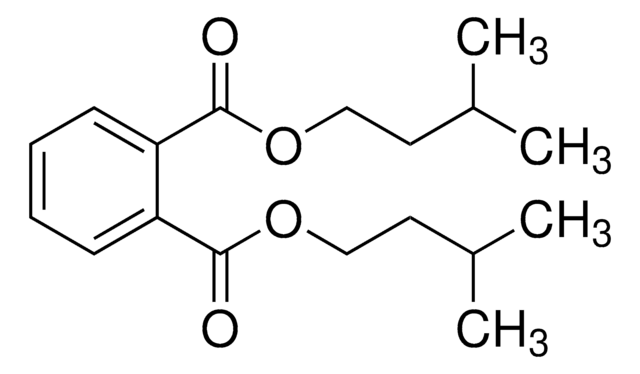About This Item
Recommended Products
biological source
synthetic
grade
Fragrance grade
Agency
follows IFRA guidelines
reg. compliance
EU Regulation 1223/2009
Assay
≥99%
form
liquid
autoignition temp.
1033 °F
refractive index
n20/D 1.515 (lit.)
bp
282 °C (lit.)
mp
2 °C (lit.)
density
1.19 g/mL at 25 °C (lit.)
application(s)
flavors and fragrances
Documentation
see Safety & Documentation for available documents
food allergen
no known allergens
fragrance allergen
no known allergens
Organoleptic
odorless
SMILES string
COC(=O)c1ccccc1C(=O)OC
InChI
1S/C10H10O4/c1-13-9(11)7-5-3-4-6-8(7)10(12)14-2/h3-6H,1-2H3
InChI key
NIQCNGHVCWTJSM-UHFFFAOYSA-N
Looking for similar products? Visit Product Comparison Guide
General description
Disclaimer
Storage Class Code
10 - Combustible liquids
WGK
WGK 1
Flash Point(F)
294.8 °F - closed cup
Flash Point(C)
146.0 °C - closed cup
Personal Protective Equipment
Certificates of Analysis (COA)
Search for Certificates of Analysis (COA) by entering the products Lot/Batch Number. Lot and Batch Numbers can be found on a product’s label following the words ‘Lot’ or ‘Batch’.
Already Own This Product?
Find documentation for the products that you have recently purchased in the Document Library.
Customers Also Viewed
Our team of scientists has experience in all areas of research including Life Science, Material Science, Chemical Synthesis, Chromatography, Analytical and many others.
Contact Technical Service










